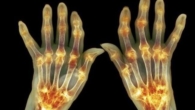
Why can't lose weight, despite all efforts
0
Eight reasons due to which weight loss can stop, and ways to instigate the process.
You went on a diet, excluded flour and sweets and got used to regular training. At first, the weight decreased, but then a plateau came: the number on the scales froze or even slightly increased. Below we will analyze why weight loss can stop and what to do to still achieve an ideal figure.
1. You are misjudging your progress
Burning fat is a long process. If you follow the diet for less than two weeks, it is too early to tell about any progress.
Weight loss occurs in waves and this process is individual. In some people, the weight does not change in the first two weeks and only then begins to decrease along with the volume.
Moreover, the scales do not always show real progress in losing weight. Body weight can be affected by muscle gain or water retention, such as during menstruation. As a result, fat deposits will melt, but the scale will not show it.
What to do about it
Do not count on quick results. Stick to your meal plan for 2-4 weeks before thinking about evaluating progress.
As for tracking results, Svitlana Nezvanova says that doctors determine weight loss by the percentage of fat, muscle mass and other body tissues. Without special equipment, you can evaluate progress by body volume: measure the girth of the chest, waist and hips at the beginning of the diet and after 2-4 weeks of following it.
2. You eat too little or too much protein
To lose weight and maintain weight, not only the total caloric content of the diet, but also the amount of protein is of great importance. Dietary protein increases the feeling of satiety and reduces cravings for sweets, accelerates metabolism — increases energy expenditure at rest.
By increasing the amount of protein in the diet, you will get some benefits, but the main thing is not to overdo it. An excess of this macronutrient can negatively affect weight loss and overall health.
What to do about it
Try to build a diet in such a way that at least 30% of calories are consumed from protein. If you do not count calories, you can aim for 1.5-2.2 g of protein per 1 kg of body weight. The exception is people with kidney disease. High-protein diets increase the risk of stone formation.
3. You have reduced sensitivity to insulin
Insulin is a hormone produced by the pancreas that helps the body maintain normal blood sugar levels. Improper nutrition with an excess of fast carbohydrates, excess weight and genetic predisposition can reduce the sensitivity of cells to insulin.
In this condition, the body will produce more and more of the hormone to cope with the increased level of glucose in the blood, which can inhibit weight loss and nullify all your efforts.
What to do about it
Losing weight and eliminating fast carbohydrates in itself improves the body's sensitivity to insulin, but to speed up progress, you can use two options.
Try a low-carb diet
If you eat grains and fruits (foods rich in carbohydrates) at every meal, insulin levels rise after meals. If you already have insulin resistance or diabetes, the weight will not come off. In this case, it is recommended to try a low-carb diet.
Such diets lower insulin levels and allow you to lose fat without losing muscle mass. However, a low-carb diet has a number of contraindications, so consult your doctor beforehand.
Do strength training
Strength training increases the expression of the protein APPL1, which regulates the uptake of glucose into cells and improves the body's ability to store it in the muscles. As a result, weight-bearing exercise increases insulin sensitivity even without weight loss. In addition, strength training together with sufficient protein intake helps maintain and build muscle mass, which increases the body's energy expenditure.
You can choose one method or try both at once. Low-carb diets go well with strength training.
4. You eat too often
There is an opinion that fractional nutrition – small, but frequent meals – helps to lose weight faster, without feeling hungry at the same time. However, an analysis of scientific data on this topic did not reveal any special benefits for weight loss and health in those who eat more than four to five times a day. And even if you carefully monitor the calorie content of snacks and do not exceed the daily allowance, numerous meals can hinder progress.
What to do about it
Take food without more often four or five times a day. You can also try intermittent fasting: it speeds up metabolism, provides good results in weight loss and has a positive effect on insulin levels.
5. You don't get enough sleep
Reducing sleep affects the secretion of hormones responsible for hunger and satiety: leptin and ghrelin. Just two nights of rest for 4 hours each increase appetite by 23%, and also cause a craving for sweets. As a result, you feel more hungry and insist on high-calorie food or suffer from the inability to do so.
Six nights of 4 hours of sleep increase the level of cortisol, a stress hormone that prevents the burning of fat and retains water in the body. And a week of 5-hour night rest significantly reduces insulin sensitivity.
Lack of sleep not only slows down weight loss, but also has a bad effect on its quality. Thus, in one study, people who slept for 5 hours a day lost 55% less fat and 60% more muscle than those who rested for 8.5 hours.
What to do with it
Try to sleep at least 7-8 hours a day, and go to bed in the first half of the night — no later than 2:00. As Svitlana Nezvanova says, from 10 p.m. until now, the body synthesizes two important hormones: melatonin and somatotropic hormone, which are associated with metabolism and fat burning.
If you are used to going to bed far past midnight, the level of these hormones falls, and cortisol rises, which negatively affects the composition of the body and the rate of weight loss.
6. You have a high level of stress
A high level of stress clearly prevents weight loss. With chronic debilitating nervous tension, the levels of cortisol and insulin will be constantly elevated, which will prevent fat burning. Long-term stress can lead to adrenal fatigue syndrome, hormonal disturbances and a decrease in metabolism.
Stress also reduces the amount of the hormone adiponectin, which is involved in the breakdown of fats, and increases the level of interleukin-6 (IL-6) and factor tumor necrosis factor (TNF-α), which can cause chronic inflammation, insulin resistance and diabetes.
In addition, the more stress you feel, the less energy you spend after eating and the worse your body oxidizes fats. If you had a strong negative experience yesterday, today you will burn about 104 kcal less than if everything was good. This difference can translate into 5 kg of weight gain per year.
What to do about it
Visualization, diaphragmatic breathing and muscle relaxation – all these techniques contribute not only to lose weight, but also to improve self-esteem and mood, relationships with friends and colleagues, and the state of affairs at work.
7. You drink little water
There is no direct connection between a lack of water in the diet and a delay in losing weight. But at the same time, the increased amount of liquid can help shift the weight from the dead point. Consumption of 500 ml of plain water accelerates metabolism by 24-30% for the next 60 minutes; 2 liters per day increase energy expenditure by approximately 95 kcal.
What to do about it
Women are advised to drink at least 2.7 liters of water per day, men – 3.7 liters. In addition to activating metabolism, this will help you reduce hunger and consume fewer calories even without controlling your diet.
8. You have hormonal disorders
Conditions in which the normal production of hormones goes astray can cause weight gain and hinder weight loss. These disorders include:
- Hypothyroidism-a malfunction of the thyroid gland.
- Polycystic ovary syndrome-disorders in the structure and functions of the ovaries, thyroid gland, and adrenal cortex. It is characterized by an increased level of male sex hormones.
- Menopause is a decrease in estrogen production that occurs with age.
What to do about it
Contact your doctor to prescribe therapy. You can also consult a nutritionist who will prescribe a suitable diet.
Whatever the reason, do not lose heart. Adjust your sleep, get rid of stress, look for an appropriate diet and training system that will become part of your lifestyle. Only in this case you will get stable weight loss and excellent health.









Leave a Reply